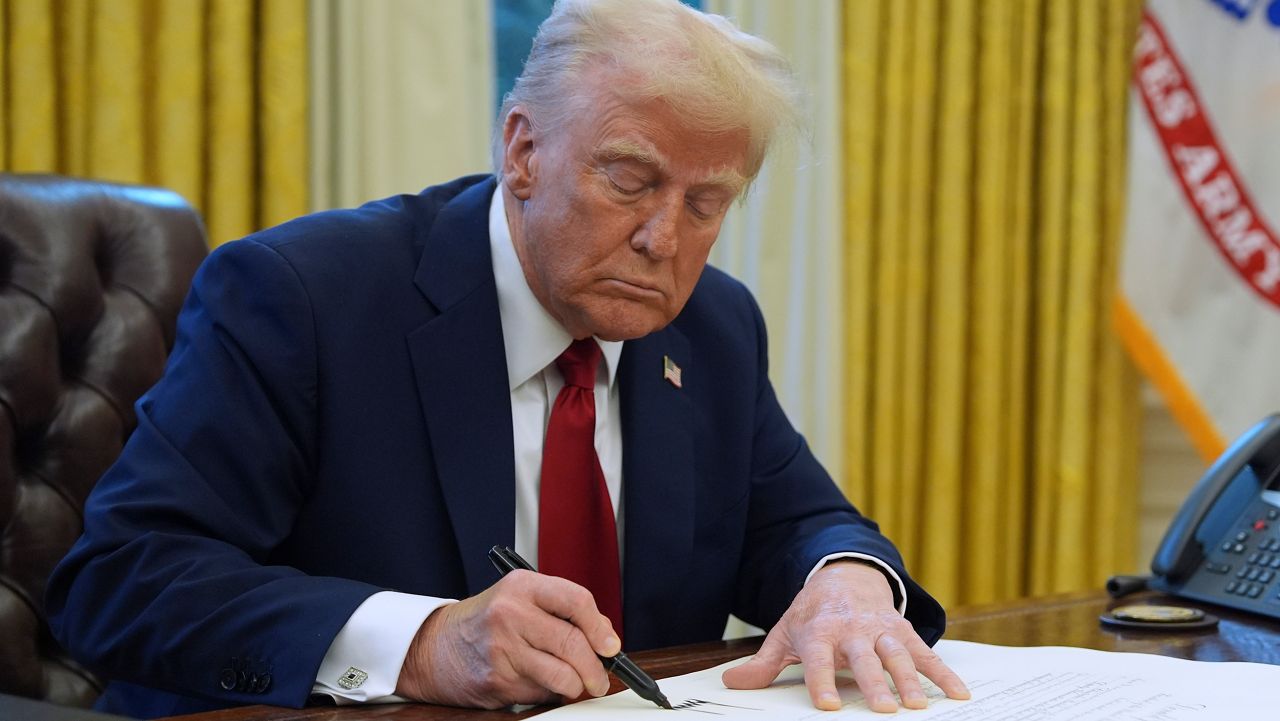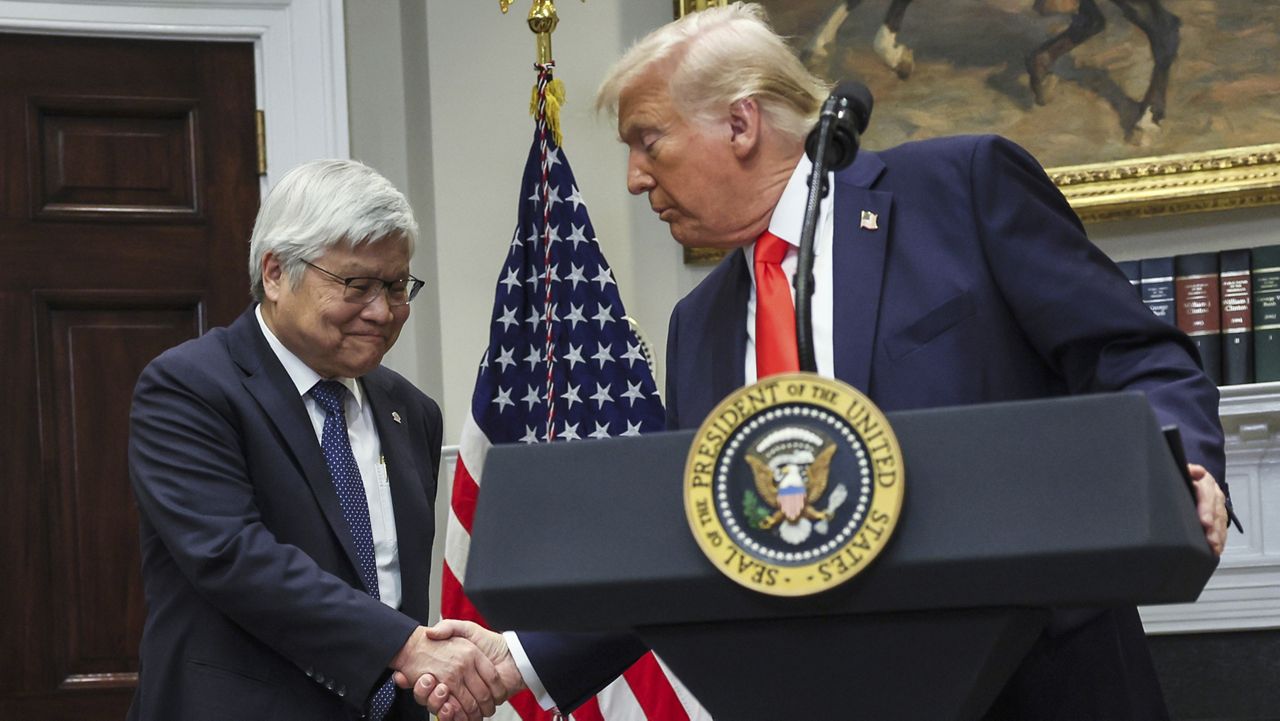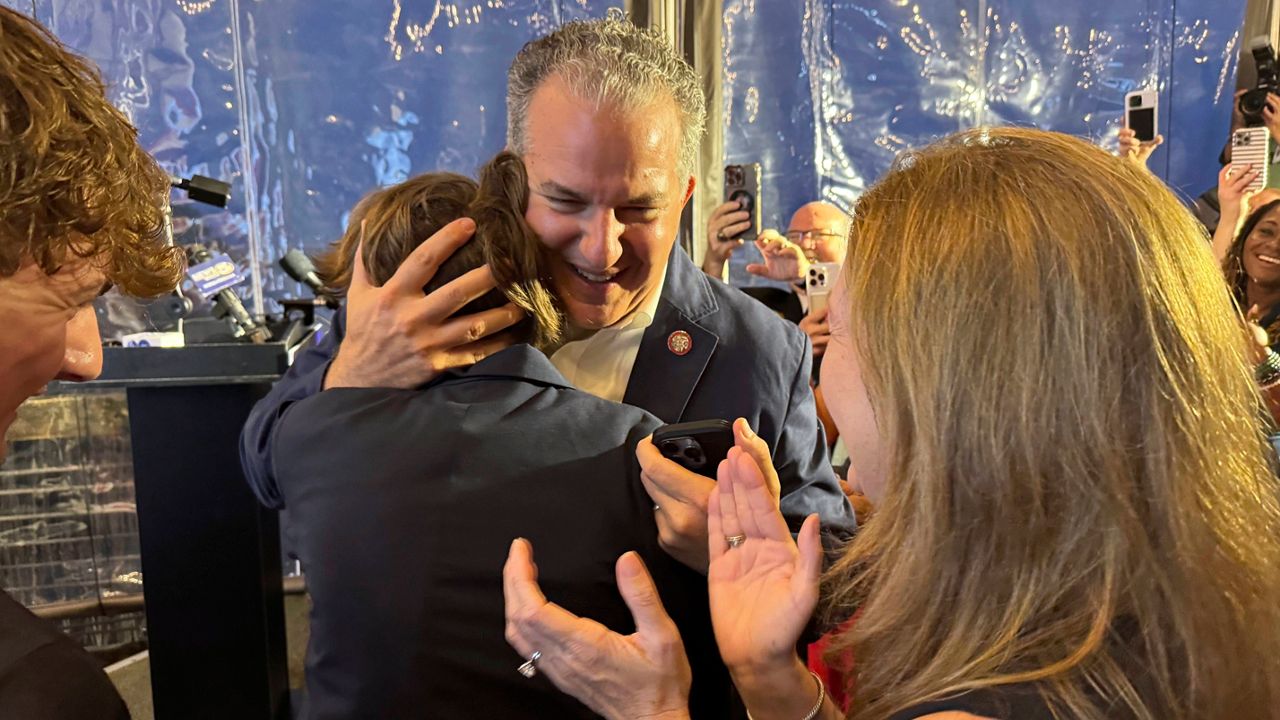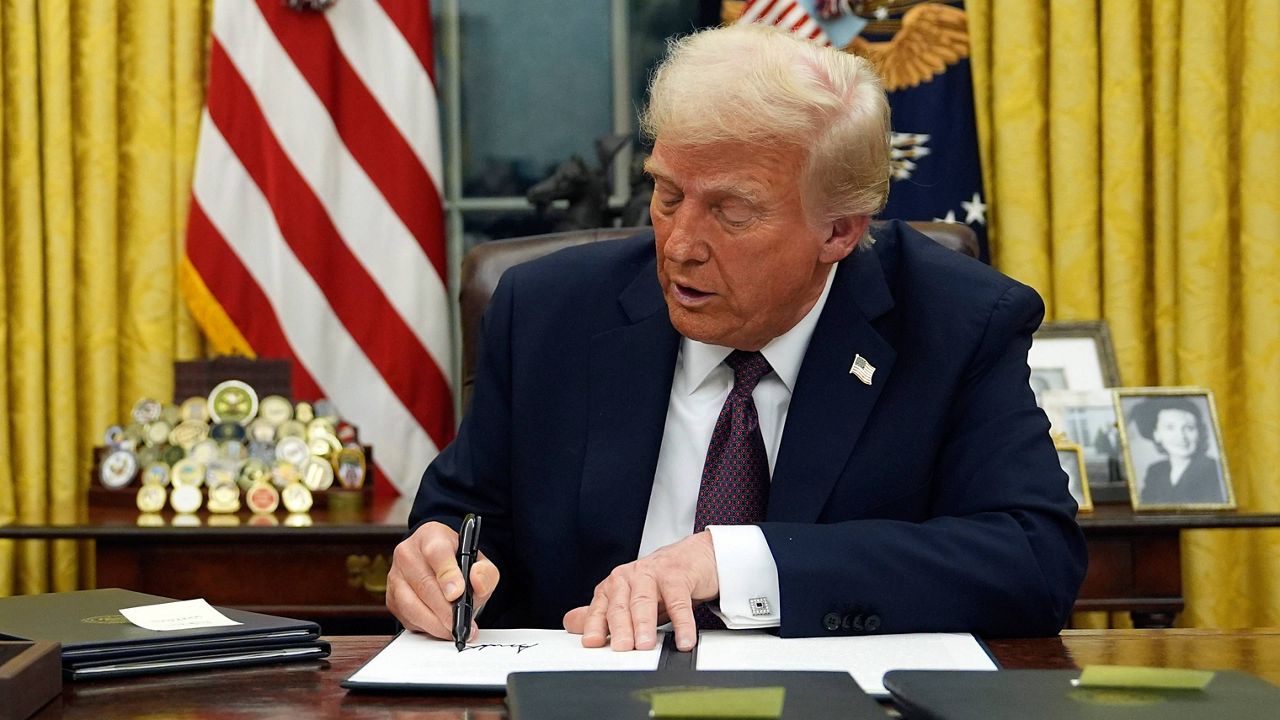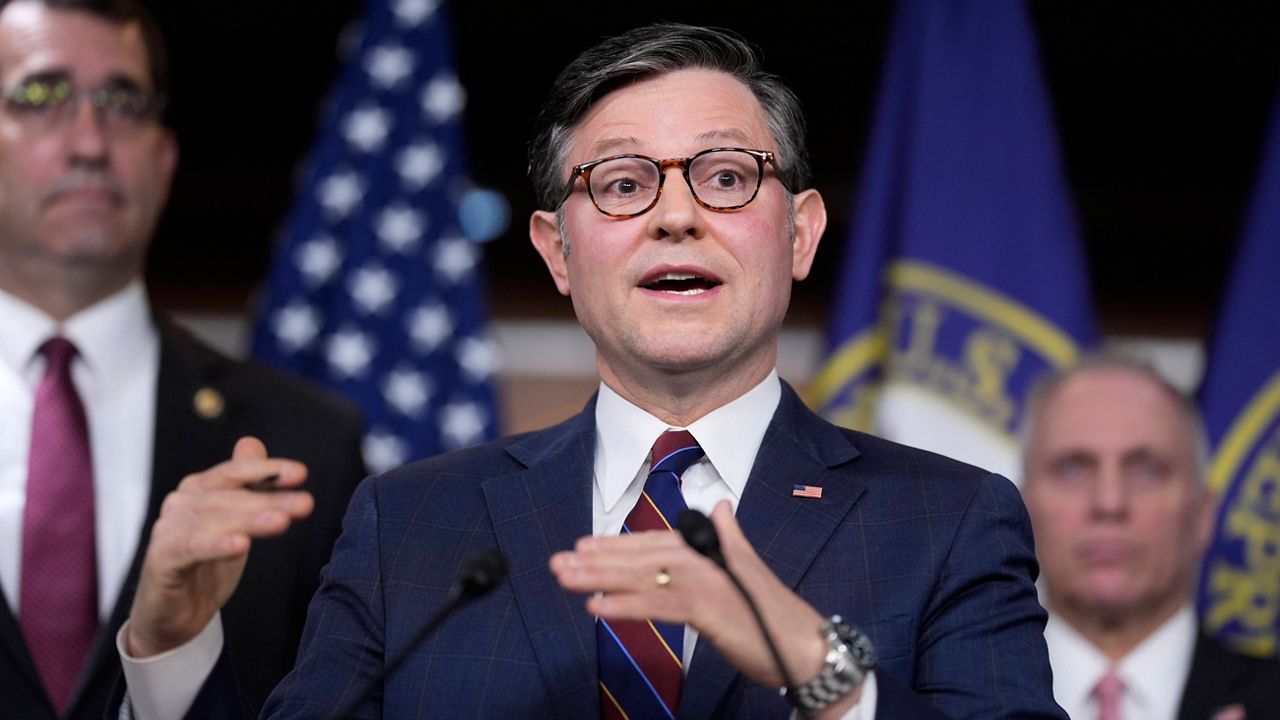WASHINGTON — Over the weekend, President Donald Trump insisted multiple times that he was eligible for and may pursue a third term as president despite being barred from doing so by the U.S. Constitution.
“I’m not joking,” Trump said in an interview with NBC News, after claiming “there are methods which you could do it.” The 22nd Amendment, ratified in 1951 after Republican backlash to President Franklin D. Roosevelt’s four election victories in the preceding decades, states plainly “no person shall be elected to the office of the President more than twice.”
On Monday, Trump said in the Oval Office that "people are asking me to run" for a third term and that "they do say there's a way you can do it."
The assertion that he can and would pursue a third term is one he has made both jokingly and in serious contexts repeatedly since winning back the White House in November. It comes as his administration — just 70 days into his second term — ignores orders from federal judges, disregards Congress’ constitutional authorities, has purged independent watchdogs and agencies, and is working to rapidly consolidate the powers of the federal government to be more completely within his control.
It’s also an idea that has been floated by some House Republicans and outside allies like Steve Bannon, the former senior White House and Trump campaign official who holds considerable sway among the president’s most fervent supporters.
Some Democrats denounced Trump’s comments and some Republicans expressed hesitancy about backing the 78-year-old president in an attempt to circumvent the 12th and 22nd Amendments for a third term that would finish when he was 86. But congressional leaders from both parties remained largely silent on the president of the United States declaring he may attempt to stay in power beyond what is legally allowed for the second time this decade.
House Speaker Mike Johnson, R-La., did not respond to requests for comment from Spectrum News on Monday after not commenting publicly on Sunday. Nor did Senate Minority Leader Chuck Schumer, D-N.Y. Senate Majority Leader John Thune, R-S.D., told reporters at the Capitol on Monday that Trump was “probably having some fun with it, probably messing with you guys” despite Trump’s insistence he wasn’t joking. Thune’s comments came moments after White House press secretary Karoline Leavitt refused to rule out the possibility on Fox News and in brief remarks to the press.
In a video posted to Instagram and Facebook, House Minority Leader Hakeem Jeffries, D-N.Y., dismissed Trump’s comments as “foolishness” and a distraction from Republican policies that “are crashing the economy in real time, trying to take away healthcare and dismantling Social Security.”
“Donald Trump is once again talking about running for a third term. You're not getting a third term. Stop talking foolishness. The Constitution doesn't permit it. And not a single Democrat in the Congress will ever vote for it. Therefore, it's not happening,” Jeffries said. “We're going to push back. We're going to show up, stand up and speak up until we end this national nightmare once and for all.”
Jeffries has consistently dismissed Trump’s references to a third term as an attempt to distract Americans from focusing on his unpopular policies, saying on CNN in February that Trump’s strategy was to intentionally unleash “extremism and outrageous things on the American people to try to disorient everyday Americans.”
Other Democrats are taking the president’s extremism and outrageousness more seriously. South Carolina Rep. James Clyburn warned in a CNN interview on Monday that his party “better get serious about this” and “I think it's time for us all to wake up.” Democratic National Committee chair Ken Martin said “this is what dictators do.” New York Rep. Dan Goldman, who has previously sounded the alarm about Trump’s desire to stay in office beyond January 2029, said in a statement that “this is yet another escalation in his clear effort to take over the government and dismantle our democracy.”
Connecticut Sen. Chris Murphy told the New Yorker over the weekend, prior to Trump’s most recent comments, that he believes it’s “absolutely possible” Trump extends his tenure as president beyond the constitutional limits and that Democrats might not even have a chance to put up a fight in 2028 if Trump gets his way.
“Every single day, I think the chances are growing that we will not have a free and fair election in 2026,” Murphy said. “If he breaks the Supreme Court and breaks the Constitution and pays no consequence for it, we could ultimately be living in a situation in which the president just declares that he will stay in office.”
“I am motivated — first, second, and third — by my fear that we are going to sleepwalk through the transition of our country from a democracy to an autocracy,” he added.
On the Republican side of the aisle, Utah Sen. John Curtis said on NBC News on Sunday he “wouldn't have supported a third term for George Washington.” Ohio Sen. Jon Husted said on CNBC on Monday morning that he didn’t believe Trump was “advocating for that” and that it was “highly unlikely” the Constitution would be changed to allow a third term. Asked by reporters at the Capitol on Monday if he would support a change to the Constitution, House Majority Leader Steve Scalise deflected and said “there’s no proposal to change the Constitution right now.”
Tennessee Rep. Andy Ogles introduced legislation in January to change the 22nd Amendment to allow presidents serve three terms if the first two were nonconsecutive. So far, the proposal has received little traction and no cosponsors.
A constitutional amendment requires support from two-thirds majorities in both the House and Senate and ratification by three-fourths, or 38 of 50, states. Alternatively, a constitutional convention can be convened if called for by two-thirds of state legislatures, though that has never happened in U.S. history.
A YouGov poll of 3,565 adults on Monday found that 60% said Trump should “definitely not” be allowed to serve a third term as president and only 20% said he “probably” or “definitely should.” But the latter number, showing those who think he probably or definitely should, jumps to 43% among Republicans with just 28% saying he should “definitely not” be allowed to extend his time in the White House.




